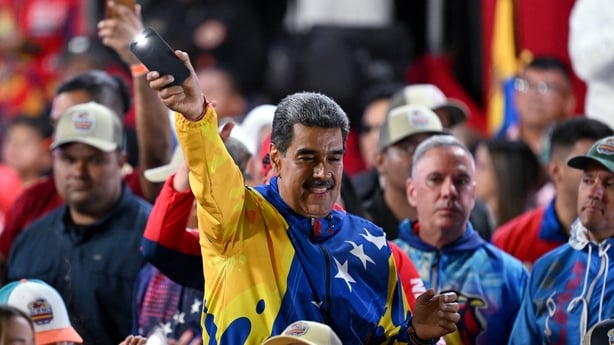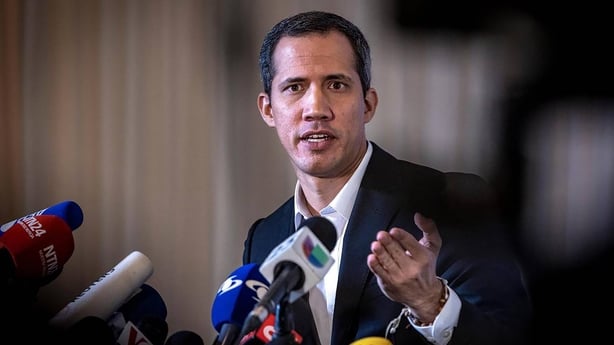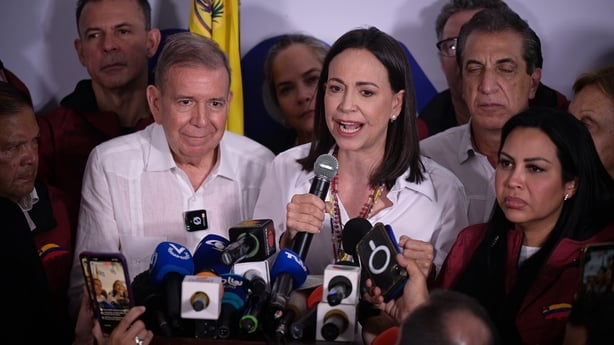Sunday's presidential election in Venezuela is the latest to be disputed by the opposition and parts of the international community since socialist Nicolas Maduro came to power in 2013.
April 2013: Chavez's successor
In April 2013, after the death of Venezuelan socialist leader Hugo Chavez, his vice president Mr Maduro narrowly won a disputed election with 50.62% of the vote.
Opposition leader Henrique Capriles called for a recount and went as far as the Supreme Court, but to no avail.
The opposition failed in its efforts to call a recall referendum to oust Mr Maduro in 2016, after the electoral commission shut the project down claiming irregularities.

Mr Maduro's first term was marked by a deepening economic crisis which sparked anti-government riots in 2014 and 2017 that were crushed by security forces, leaving more than 168 people dead.
His government clamped down on the opposition, gradually seizing more powers and Venezuela became increasingly isolated internationally. The United States imposed sanctions.
May 2018: disputed re-election
Mr Maduro won re-election in May 2018, a result rejected as neither free nor fair by the opposition. The US and the European Union imposed new sanctions.
More than 60 countries refused to recognise his re-election, including the US which in 2019 slapped an oil embargo on Venezuela.
January 2019: rival claims recognition
On 21 January, a small group of soldiers rebelled against the government and were arrested. Mr Maduro accused Washington of ordering a coup.
Two days later, National Assembly speaker Juan Guaido declared himself acting president. The National Assembly has been in the hands of the opposition since 2015.
Around 60 countries recognised him, led by the US.

April 2019: failed uprising
On 30 April 2019 an uprising by a small number of soldiers in support of Mr Guaido failed.
December 2020: opposition boycott elections
In December 2020, Mr Maduro regained control of parliament in legislative elections boycotted by the main opposition parties and rejected by the international community. The vote was marked by very low turnout.
In late 2022 the deeply divided opposition put an end to Mr Guaido's presidency and interim government.
The US said on 3 January 2023 that it still did not consider Mr Maduro to be the legitimate president.
2024: opposition leader elbowed out
This year's election was held after an agreement between Caracas and the opposition to hold free and fair elections. In exchange, the US eased sanctions on Venezuela.
However, several months before the 28 July presidential election, popular opposition leader Maria Corina Machado was excluded from the race by authorities loyal to Mr Maduro over corruption allegations.
She was replaced by little-known diplomat Edmundo Gonzalez Urrutia.

In April the US reimposed sanctions on Venezuela's oil and gas sectors.
According to official results proclaimed late on Sunday, Mr Maduro was re-elected with 51.2% of the vote.
The EU and many countries, including the US, expressed doubts about the transparency of the election.
The opposition coalition claimed it was the rightful victor.

